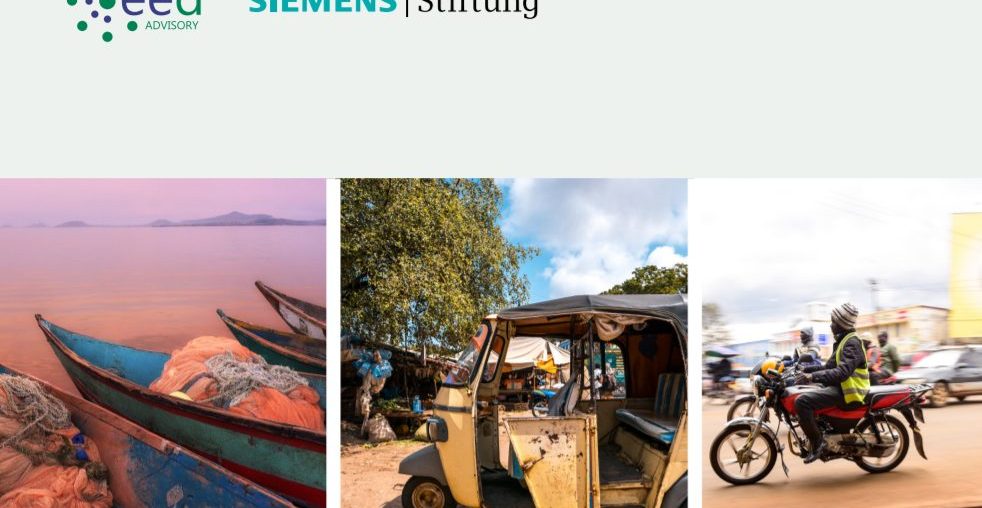While the benefits (especially environmental benefits) of embracing e-mobility for rural and peri-urban areas in Africa are obvious, most business decisions are made based on assumptions and unstructured data. Siemens Stiftung sought to address this information gap by assessing the environmental benefits to be accrued from using e-mobility as an alternative to conventional solutions through this study.
Siemens Stiftung, with support from the German Development Cooperation, mandated this study on the environmental impact of e-mobility in the Lake Victoria Region in Western Kenya. The objective of the study is to establish the GHG abatement potential as well as any other environmental benefits accruing from the adoption of e-mobility through a fleet assessment of the conventional two-, three-wheelers and diesel outboard engines. This included a review of the policy landscape, highlighting existing policies aiding the shift and offering insight on future policy considerations needed for sector growth as well as an in-depth understanding of the impact of EV’s on energy demand. An assessment of carbon trade through government CO2 compensation instruments and the voluntary mechanisms also contributed to the findings of the study


